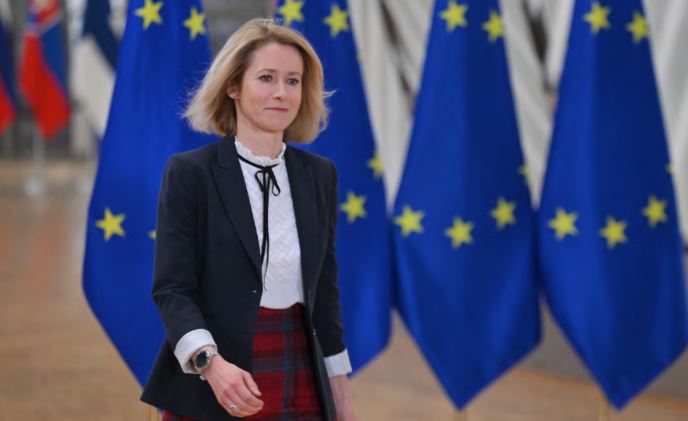Brussels: European Union envoys have approved a new raft of sanctions against Russia, with the measures set to enter into force next week on the third anniversary of its full-scale invasion of Ukraine, a top EU official and diplomats confirmed Wednesday.
The move comes with the Europeans sidelined from US-led talks to end the war.
The EU has slapped several rounds of sanctions on Russia since President Vladimir Putin ordered his troops into Ukraine February 24, 2022. More than 2,300 officials and entities – usually government agencies, banks and organizations – have been hit.
The diplomats confirmed approval of the sanctions — the 16th package of measures including travel bans, asset freezes and trade restrictions — on condition that they not be named. The measures are still not entirely finalised until EU foreign ministers endorse them Monday, allowing them to enter force.
Among the latest sanctions are measures targeting Russia’s so-called “ shadow fleet ” of ships that it exploits to skirt restrictions on transporting oil and gas, or to carry stolen Ukrainian grain. Some 70 vessels believed to be part of the shadow fleet will be added to more than 50 already listed.
EU Commission President Ursula von der Leyen, whose services drafted some of the measures for consideration, welcomed their prospective adoption by the 27-nation bloc’s ambassadors.
“The EU is clamping down even harder on circumvention by targeting more vessels in Putin’s shadow fleet and imposing new import and export bans. We are committed to keeping up the pressure on the Kremlin,” she said in a social media post.
Almost 50 Russian officials will be targeted, joining a list that already includes Putin, several of his associates and scores of lawmakers, while dozens more entities face sanctions. Among the measures are restrictions on 13 Russian banks and 3 financial institutions, the diplomats said.
The sanctions would also place restrictions on the use of 11 ports and airports in Russia that the EU considers are being used to help Moscow bypass an oil price cap and other measures already imposed by the bloc.
AP
